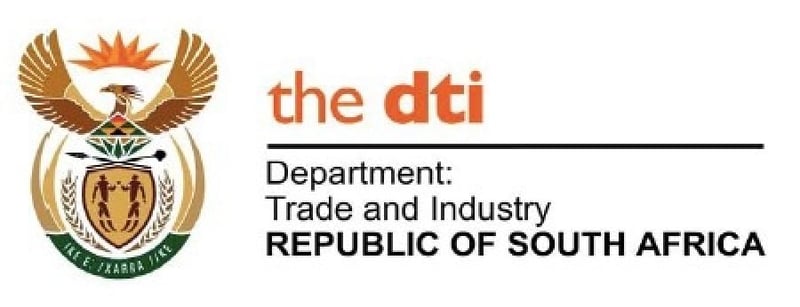Local content is one of important policy levers in industrial policy action plan
Written by: MyPressportal Team Save to Instapaper
This was said by the Minister of Trade and Industry, Dr Rob Davies at the Buy Local Summit which took place in Sandton
Local content is one of the important policy levers in the Industrial Policy Action Plan (IPAP) as it leverages public expenditure and respond to a myriad of economic challenges facing South Africa. This was said by the Minister of Trade and Industry, Dr Rob Davies at the Buy Local Summit which took place in Sandton.
According to Minister Davies, localisation is an extremely important policy tool for industrialisation. Through local content procurement, a policy lever is provided amongst others, to minimize import leakages which represent an outflow of funds whilst at the same time attempting to increase both aggregate demand and supply in the South African economy.
“This is a tool that has been deployed by almost every country in the world at any time when embarking on industrialisation. The Preferential Procurement Policy Framework Act (PPPFA) regulations require all organs of state to purchase only locally-produced goods at a prescribed level of local content. For each designated product, except pharmaceutical products, there are instruction notes which regulate the environment within which government departments and public entities may procure designated products,” said Davies.
Davies said that twenty-one products and commodities have been designated for local procurement with stipulated minimum thresholds of local content and more are in the pipeline. He further added that the economic objective of local procurement is for local manufacturers to receive a substantial share of government business, where sustainable order books will contribute to the development of local industries and the creation of jobs.
“Local content, therefore, must not be seen only as a supply chain instrument to be implemented by procurement officers. Well designed and implemented local content can open up opportunities for local economic development in the furniture, clothing, textiles, and cable sectors. This will require pooling of purchases through transversal contracts at national, provincial and local spheres of government,” added Davies.
Total current investment in building and construction is about R380-billion, the industry having grown seven fold since 2000 when investment was only R55 million. Public sector expenditure accounts for 55% of this at R210-billion. From March 2015 to July 2016, almost R57.06 billion has been locked into the country as a result of local content requirements, mainly as a result of the rail rolling stock fleet procurement.
“It is imperative that the majority of this expenditure benefits the SA economy and leveraged to develop domestic manufacturing supply chains. Government must buy locally-produced goods at a massive scale. South African manufacturing companies have and are developing capabilities, skills and expertise to manufacture, assemble and supply most priority sectors,” said Davies.
Distributed by APO on behalf of The Department of Trade and Industry, South Africa.
We submit and automate press releases distribution for a range of clients. Our platform brings in automation to 5 social media platforms with engaging hashtags. Our new platform The Pulse, allows premium PR Agencies to have access to our newsletter subscribers.
Latest from
- RAM and Vodacom Bulls Celebrate Fan Loyalty with Grand Prize Isuzu D-MAX X-Rider Giveaway
- Unlocking the Secrets to Long-Term Channel Loyalty Through Strategy Trust and Partnership
- Murray and Roberts Announces Closure After Decades as a Leader in South African Engineering
- The Missing Link Between AI and Customer Experience Lies in Accurate Data and Strong Knowledge Bases
- Stellenbosch University Breaks New Ground with MPhil on Violent Histories and Transgenerational Trauma
- Ford Prioritises Customer Safety with Recall of Over 21 000 Vehicles in Southern Africa
- ERWIC Awards Showcase the Power of Women Leading South Africa’s Construction Industry
- Isuzu Motors South Africa Announces Ambitious Plans to Make Country Hub for African Truck Output
- Starbucks Nelspruit Welcomed by Community as New Store Becomes a Hub of Coffee Culture and Connection
- Tourism Leaders Unite to Rethink ESG for Southern Africa at SADC Alliance Industry Think Tank
- Beeshoek Mine Workers Face Uncertain Future as Contract Collapse Threatens Nearly 700 Jobs
- South African Film Industry Shines as Seven Premieres Headline Silwerskermfees and Beyond
- OFM Announces Volt Competition Winner as Corlia Hamlett from Douglas Scoops Grand Prize of R29 000
- Victoria Witbooi Champions Safer and More Reliable Public Transport Through Mocwagole Passenger
- Rania El-Rafie of APO Group Celebrated as One of 10 Women Shaping the Future of Public Relations
The Pulse Latest Articles
- Designed To Inspire_the Raindance Alive Experience (August 18, 2025)
- Zintle Mpupha’s World Cup Mindset, Prepared For The Big Stage (August 18, 2025)
- Hansgrohe Reinvents The Washbasin With Avalegra (August 15, 2025)
- From Tiktok To The Karoo: New SA Initiative Reclaims Manhood Through Wilderness (August 14, 2025)
- Rode Report Expands Coverage To Include Multifamily Rental Housing (August 13, 2025)
